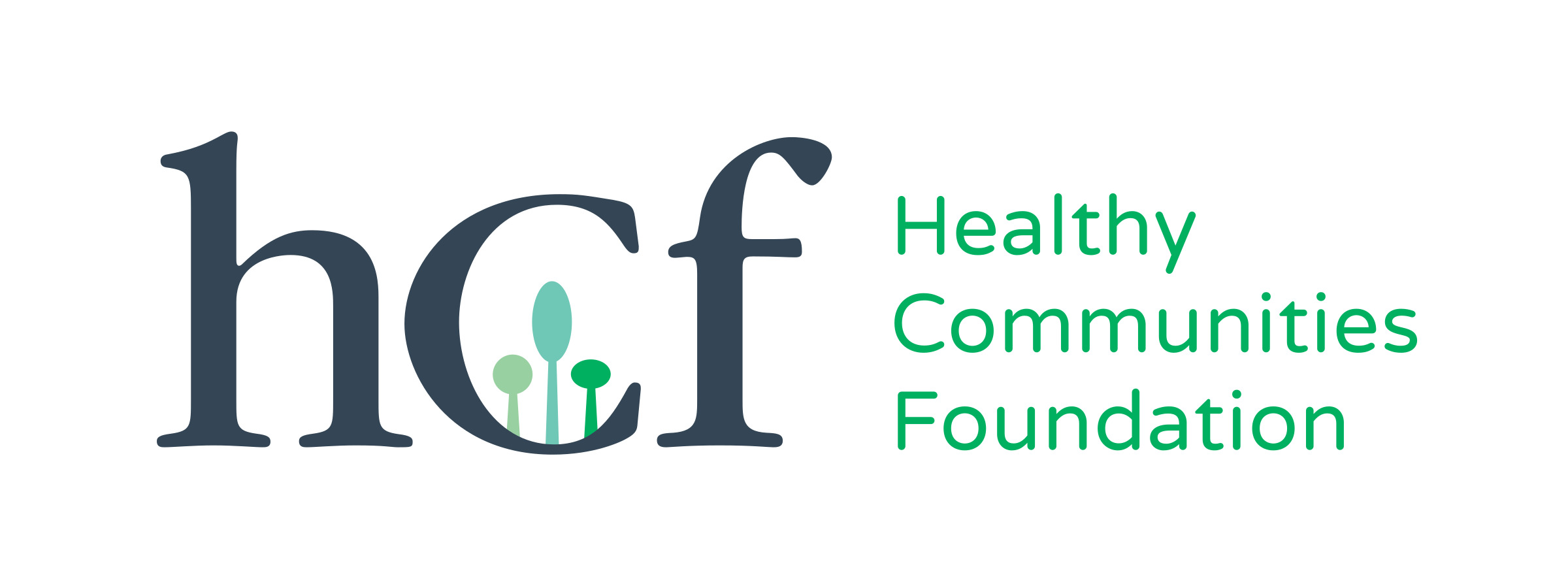Policy & Advocacy
We work alongside grantee partners to advance health equity by uplifting community-led policy solutions, supporting advocacy efforts, and empowering those most impacted by long-standing barriers to resources, opportunities, and fair treatment across health, housing, and economic systems.
Recent challenges, including the unequal health and economic impacts of the COVID-19 pandemic and the influx of new arrivals, have tested our region’s systems and heightened existing tensions in communities already strained by the aftermath of social uprisings and the racial reckoning of 2020. Despite these difficulties, our grantee partners have remained committed to advancing health equity in their communities. They have leveraged grassroots organizing, service delivery, and policy advocacy to support historically marginalized communities across our service region.
Our partners have been a steady force, reminding each other, their communities, and Healthy Communities Foundation that we are not only built for this moment—we are rising to meet it together.
2025 Policy & Advocacy Framework
As a private foundation, we are mindful of legal limits around policy and advocacy initiatives. However, we use our platform to amplify nonpartisan, partner-informed issues shaping health policy to help create fairer access to care and resources across our region.
Guided by our strategic plan and theory of change, our policy agenda centers the priorities and issues identified by our partners and outlines how we support their efforts to address the root causes that lead to unequal health outcomes and opportunities. Since 2021, our framework has adapted to meet a shifting landscape. Still, our goals remain the same: to elevate the leadership and solutions of those most impacted by health and racial inequities and to advance upstream strategies that build community power and transform the systems that shape our health.
We anchor our policy and advocacy efforts in three core pillars that reflect our partners’ priorities, expertise, and leadership to move toward this long-term vision.
Advocate for increased investments in community-based education, outreach, and resource sharing to support communities at risk of losing federal and state-based health coverage.
Why This Matters
- State and federal threats to Medicaid and immigrant health coverage pose serious risks to our region. The proposed elimination of Ilinois’ Health Benefits for Immigrant Adults (HBIA) program in Summer 2025 could leave over 10,000 people in Cook County without coverage, many of whom live in our service region as it is home to some of the largest immigrant enclaves in the County and. Simultaneously, proposed federal cuts to Medicaid funding could revoke coverage for over 70,000 residents in our region and jeopardize critical safety net hospitals that serve high numbers of Medicaid patients.
- This moment demands action to support our partners and allies who are informing, resourcing, and assisting community members in maintaining access to Medicaid, food, and other essential safety-net benefits–particularly in communities most at risk of being left behind.
How We Will Take Action
We will:
- Convene grantee partners with expertise in community organizing, policy, and healthcare enrollment to share updates, provide education on key issues, and connect community members, organizations, institutions, and peer funders with enrollment assistance resources.
- Engage elected officials through targeted learning opportunities that highlight local outreach, resource needs, and technical assistance efforts in our region.
Strengthen grantee partners' internal and external capacity to actively advance upstream policy changes that promote health equity.
Why This Matters
- Grantee partners continue to emphasize the importance of redefining organizational resilience and investing in staff in ways that recognize the mental health burdens faced by those serving both their own needs and their communities.
- Recent and proposed shifts in federal funding priorities underscore the importance of maintaining our commitment to long-term grantmaking strategies. These approaches help ensure that all community-rooted organizations, especially those serving populations historically excluded from resources, can invest in their staff and organizational infrastructure to meet urgent needs and build long-term resilience in the face of federal challenges and state budget cuts.
How We Will Take Action
We will:
- Focus our systems change grantmaking strategy on providing reliable, consistent funding to support long-term organizing, local civic infrastructure, and advocacy initiatives for health equity.
- Advocate with peer funders for increased general operating and multi-year support, simplified application and reporting processes, and a commitment to trust-based grantmaking.
Advocate for and leverage resources to support organizational and community solidarity, resilience, and civic engagement in our service region.
Why This Matters
- Changing the conditions and systems of our communities requires a focus on power, as the political and economic factors shape the structural determinants of health. It requires investment in local leadership, alliances and coalitions with shared analysis and goals, and support for organizations, infrastructure, and cultural and narrative change to advance health equity in a bold, unified way.
How We Will Take Action
We will:
- Deepen grantmaking strategies that center and foster collective advocacy and narrative change, supporting partners during and beyond crisis.
Reports & Publications
Read our latest reports and thought pieces where we discuss how we integrate community-driven insights and trust-based practices into our grantmaking.



